WUS Presentation: Social Media's Impact on Student Academics
VerifiedAdded on 2023/06/12
|10
|575
|320
Presentation
AI Summary
This presentation examines the detrimental effects of social media on student academics, focusing on procrastination, poor time management, and declining academic performance. It highlights how platforms like Facebook can disrupt study habits, cause students to lose interest in essential activities, and impair their attention during crucial tasks. The presentation further explains how social media contributes to time wastage through constant updates and chats, ultimately affecting academic outcomes. Additionally, it addresses the negative impacts on students' health, including reduced participation in sports, brain strain, and mental health issues stemming from excessive social media use. The presentation concludes by advocating for the responsible use of social media to mitigate these adverse effects, emphasizing its potential harm to students' academic performance and overall well-being. Desklib offers a wealth of similar resources for students seeking academic support.
1 out of 10
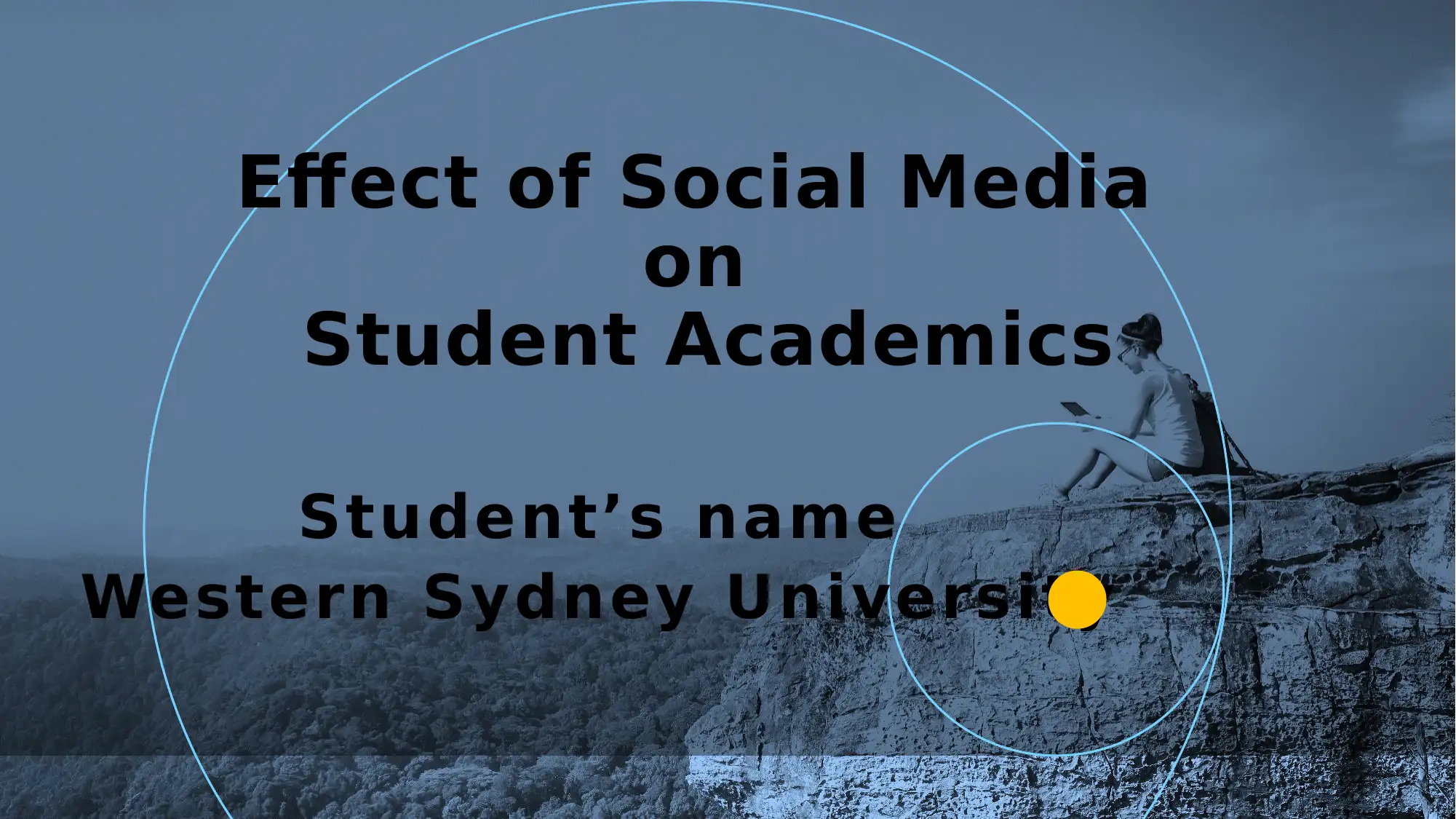
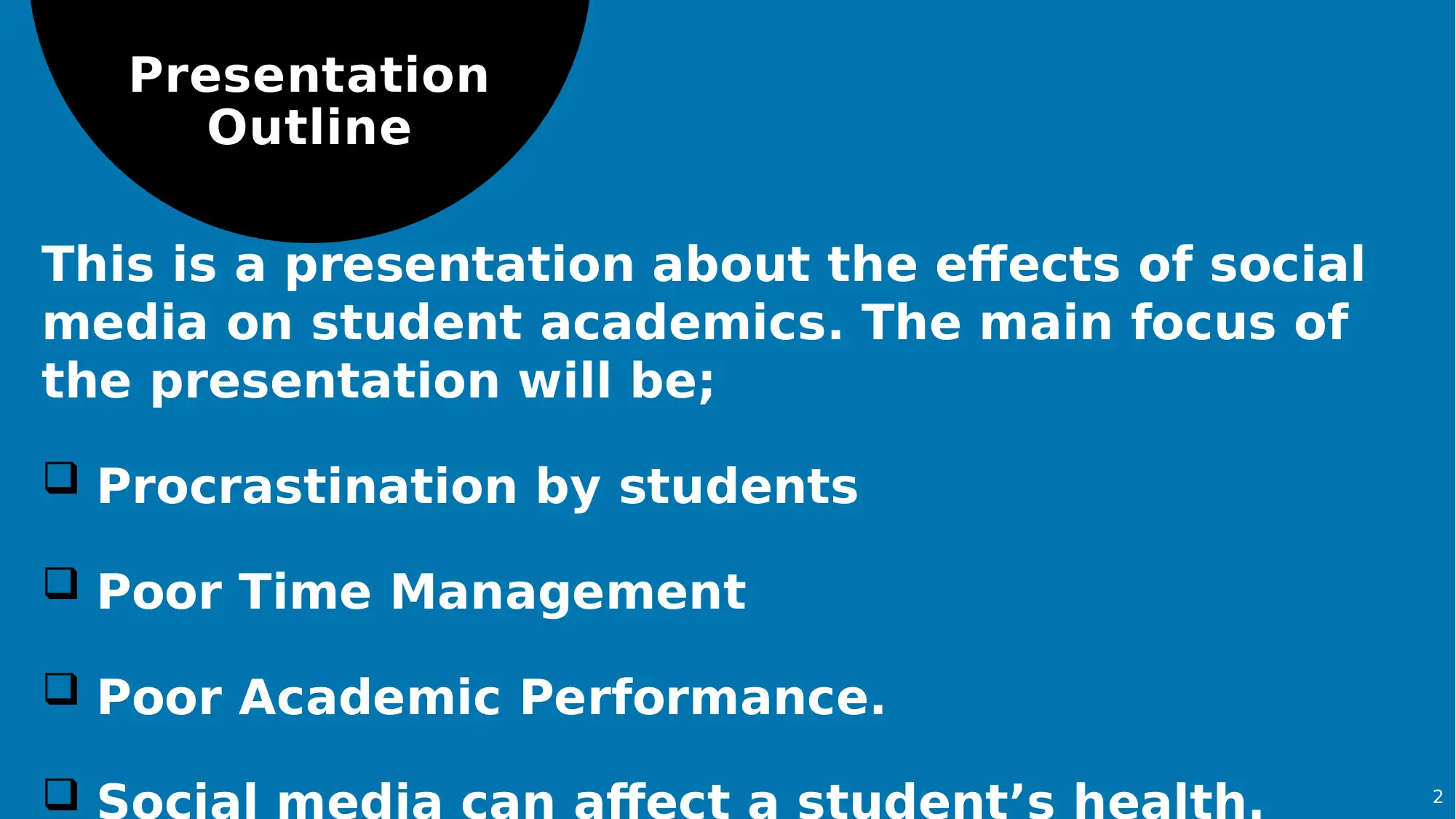
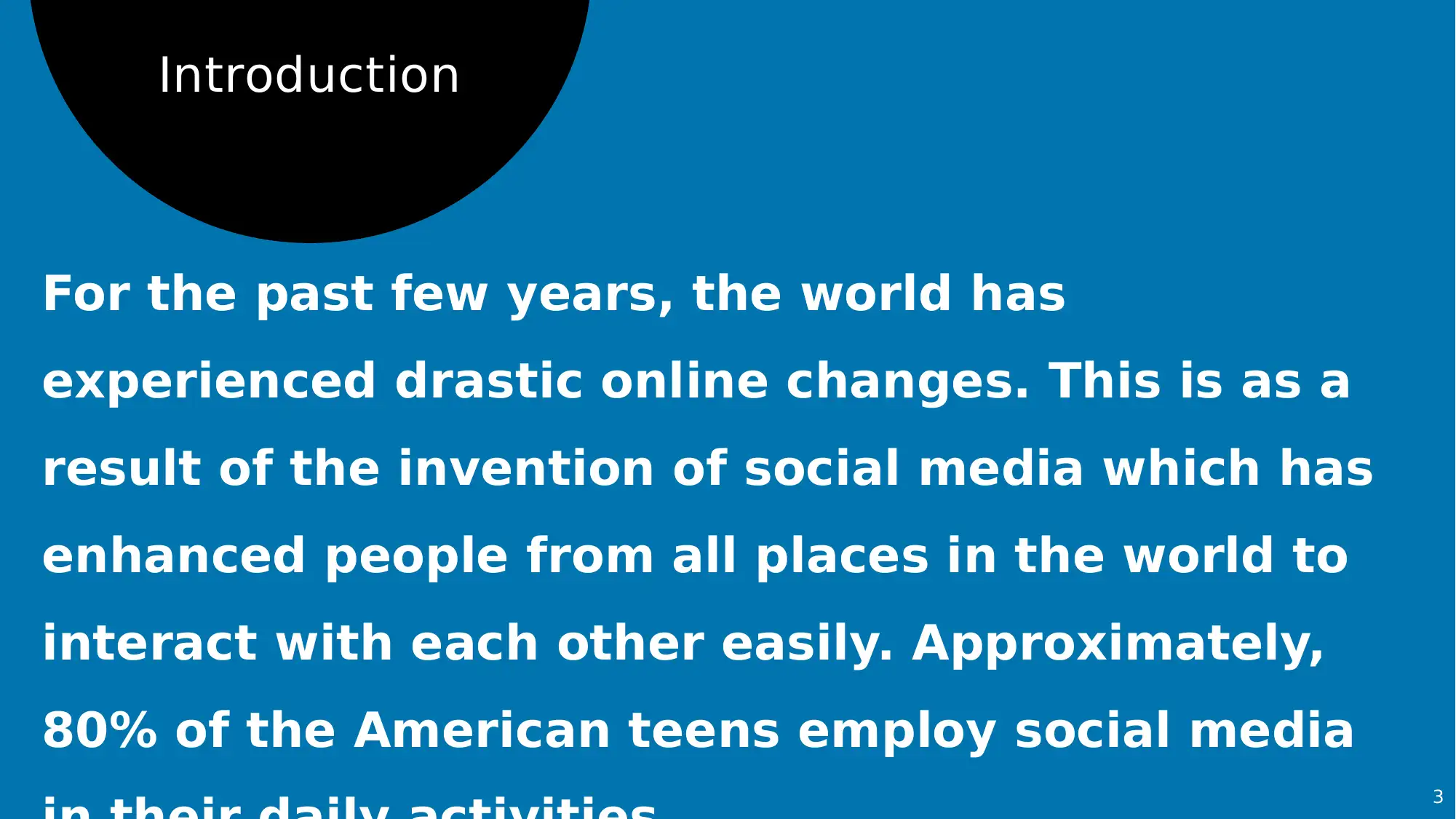

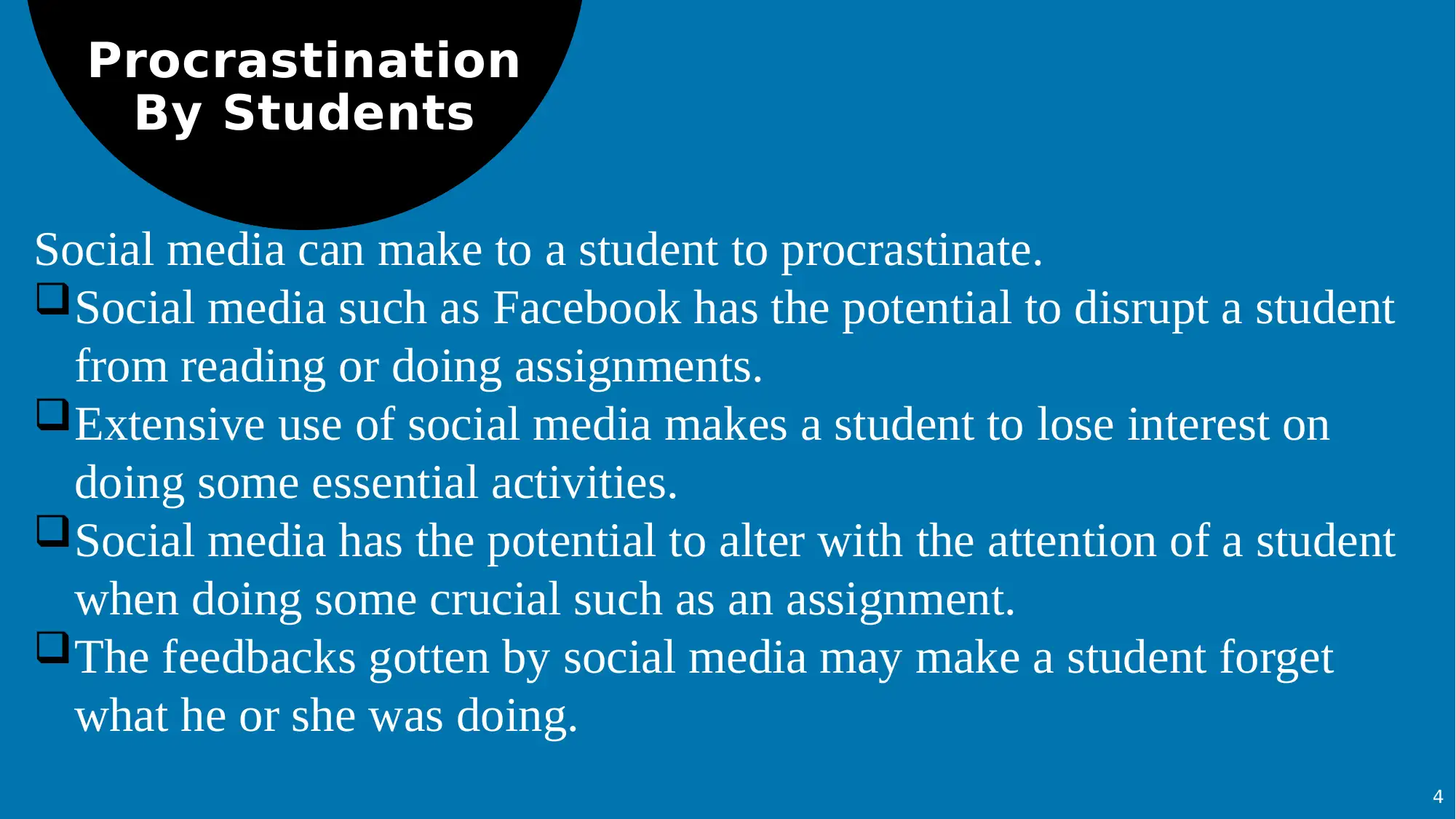
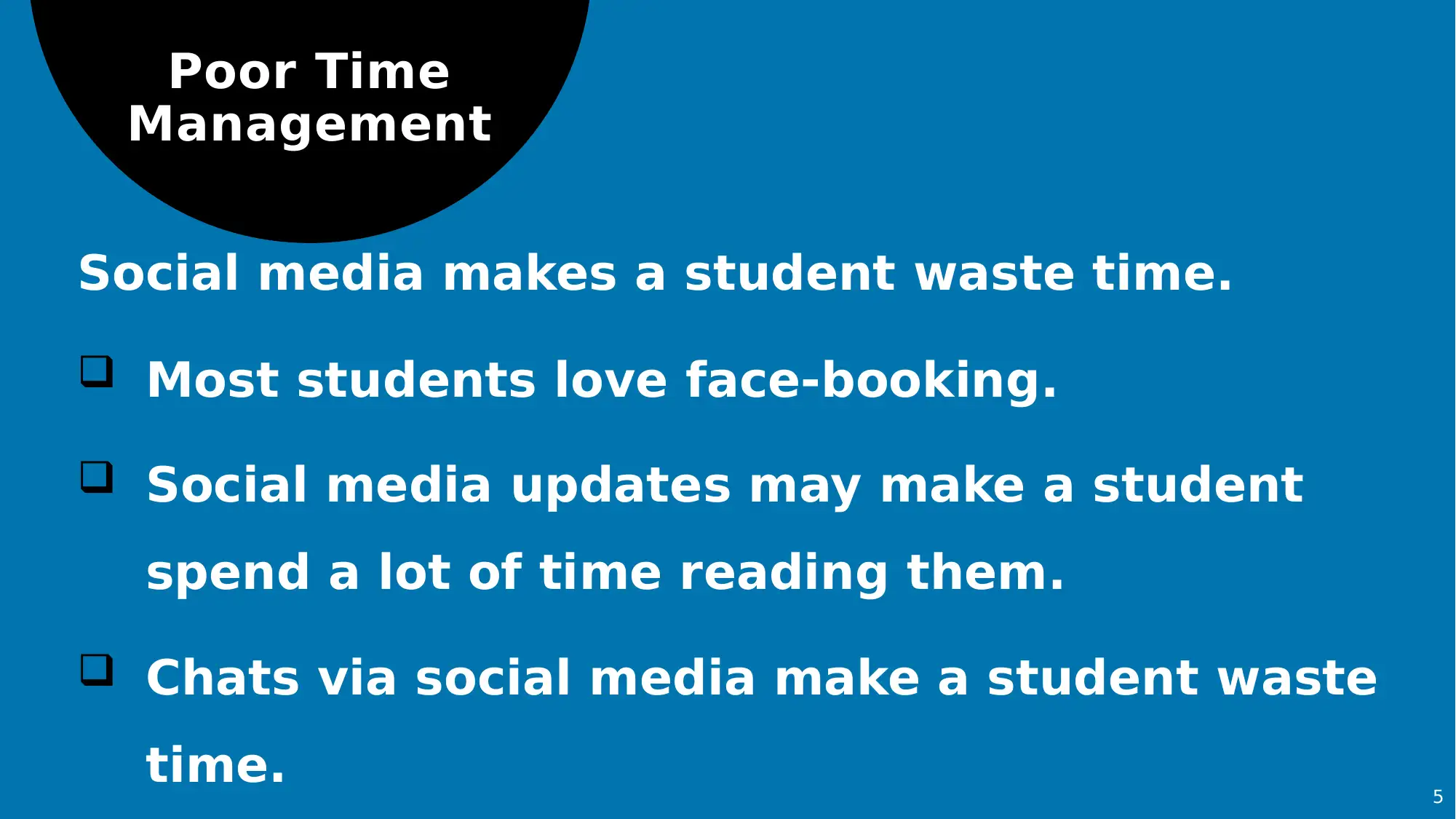
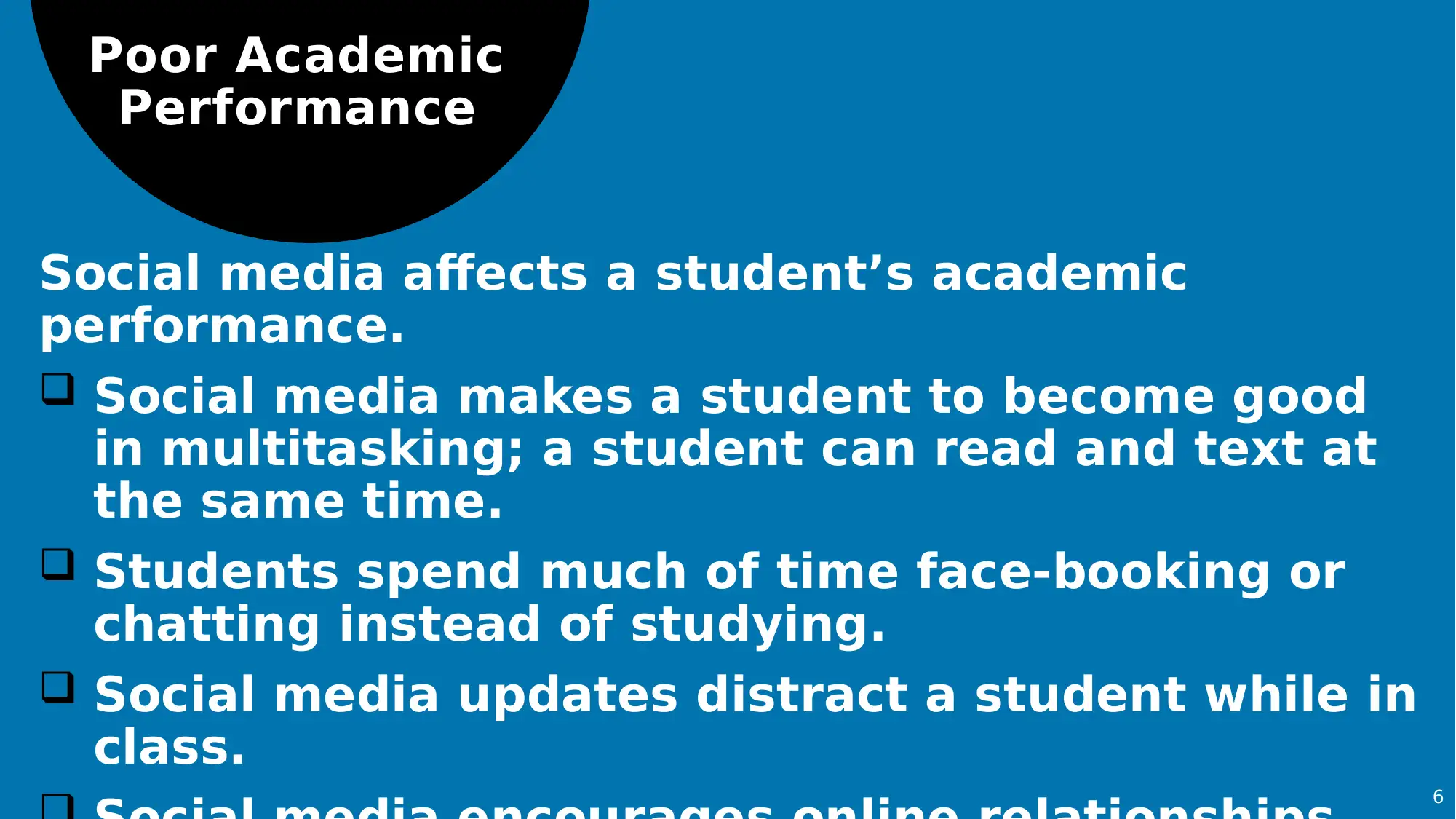
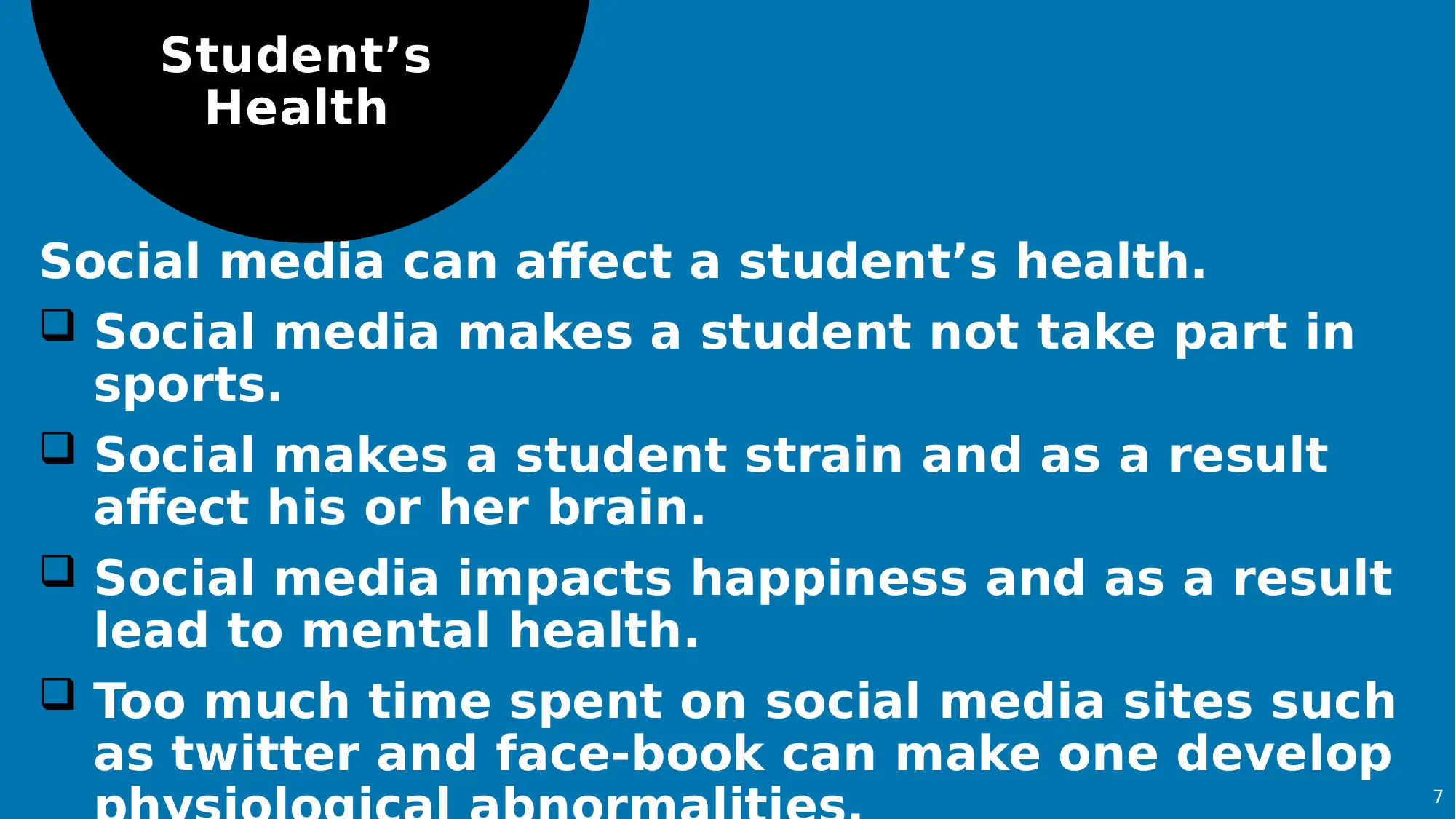
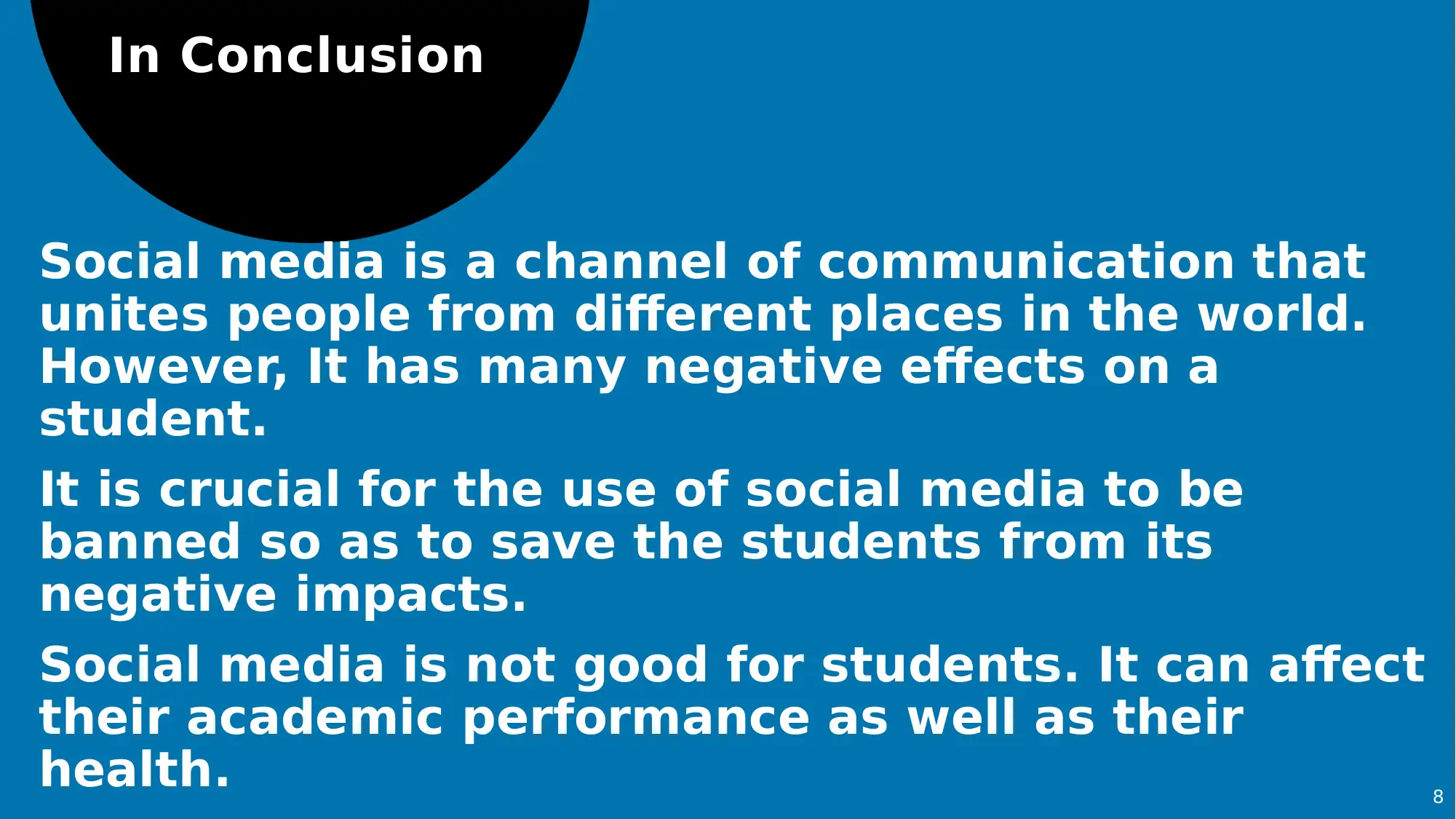
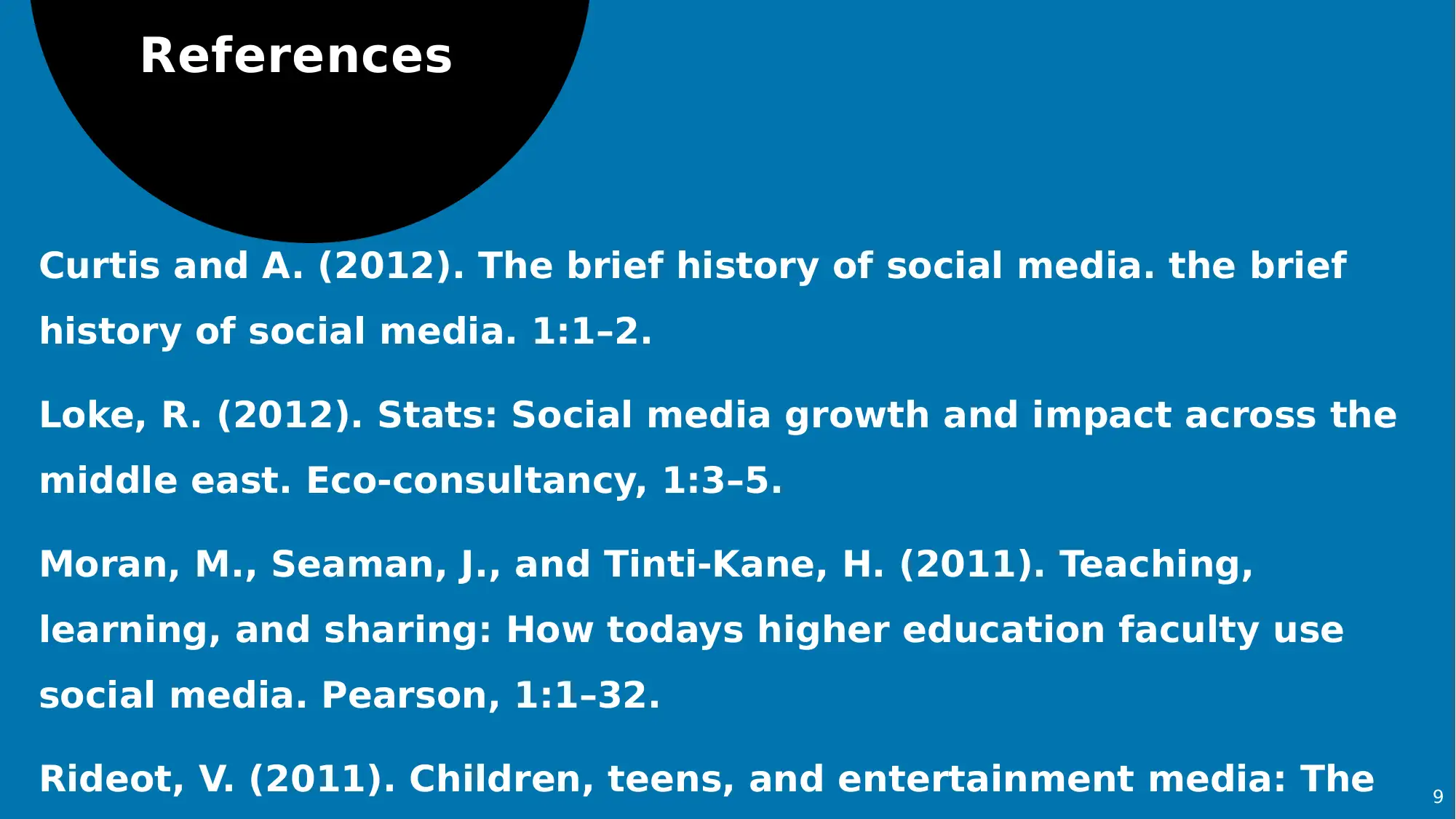
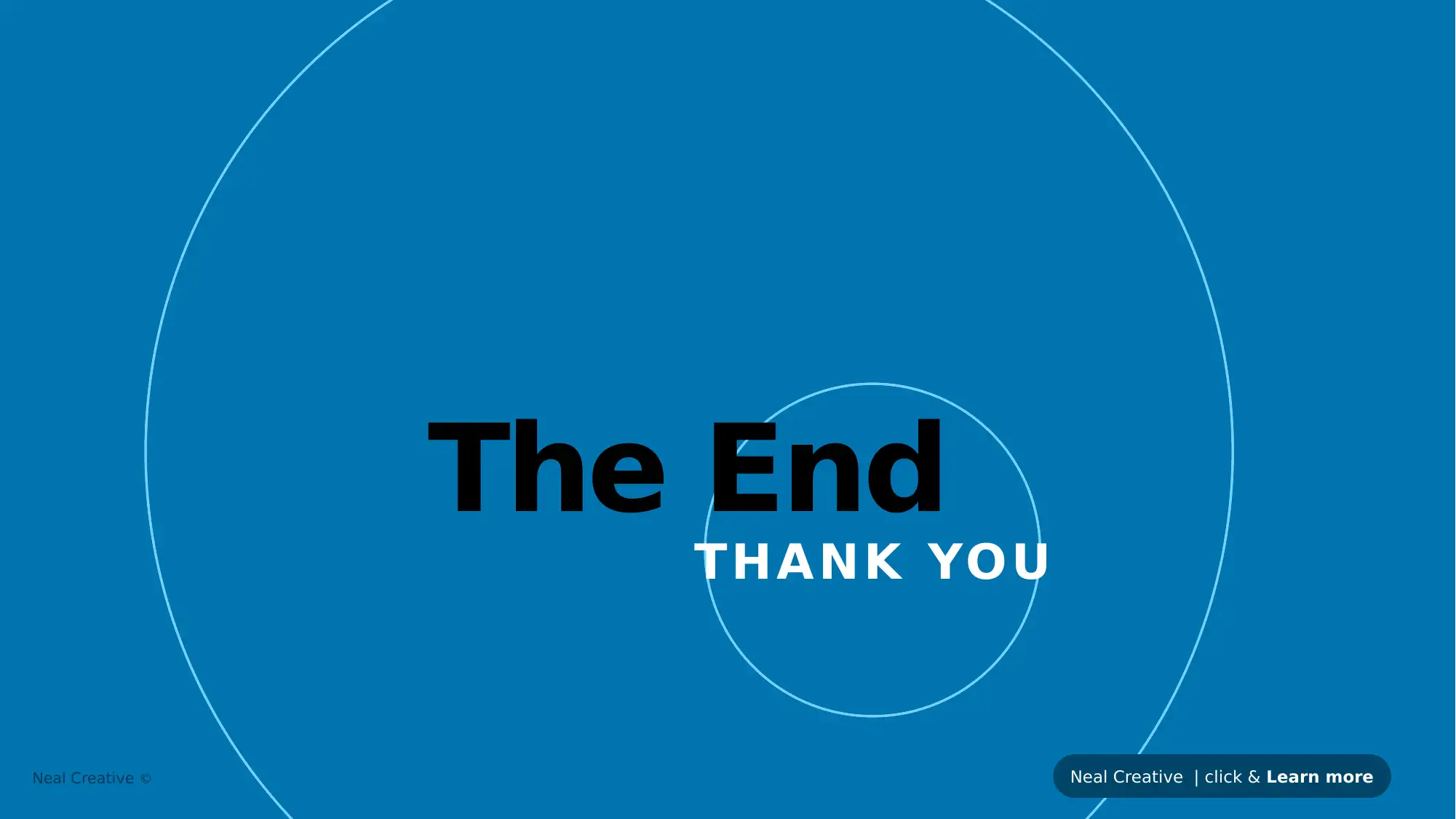






![[object Object]](/_next/static/media/star-bottom.7253800d.svg)